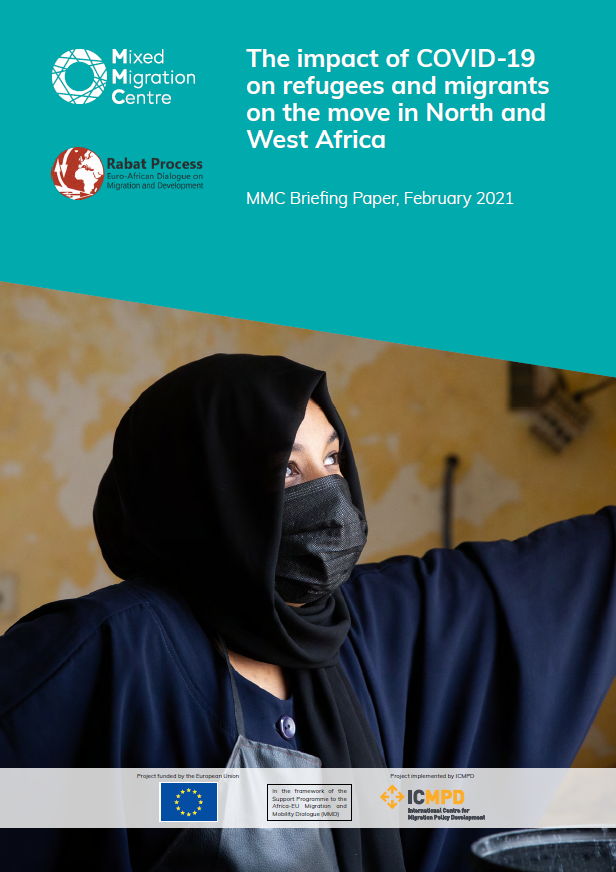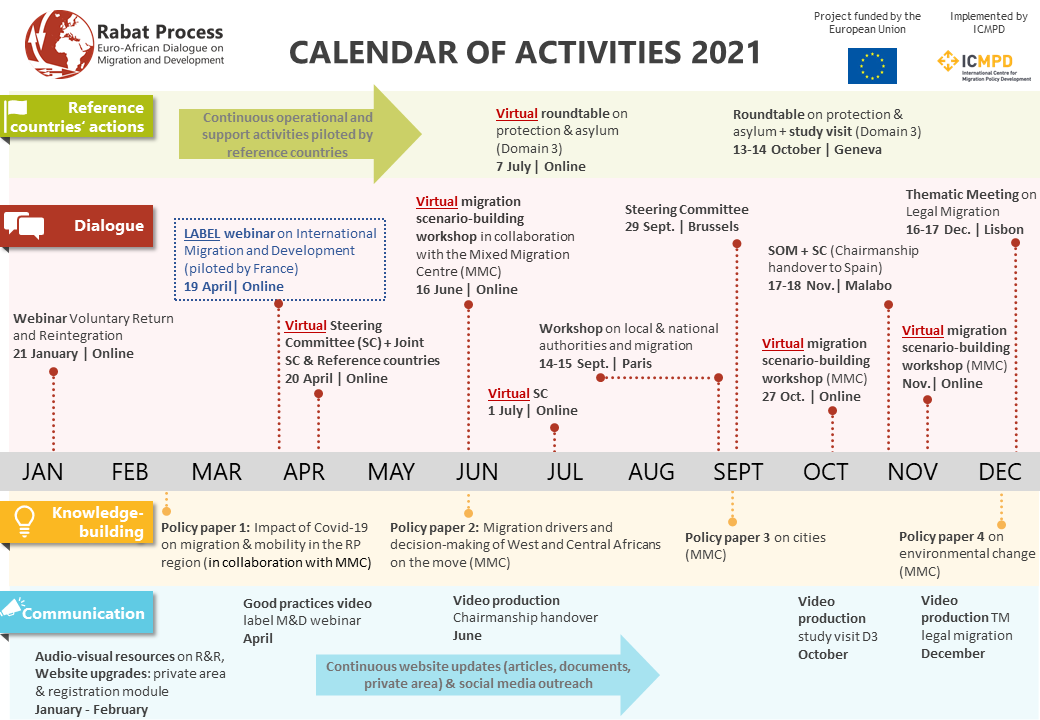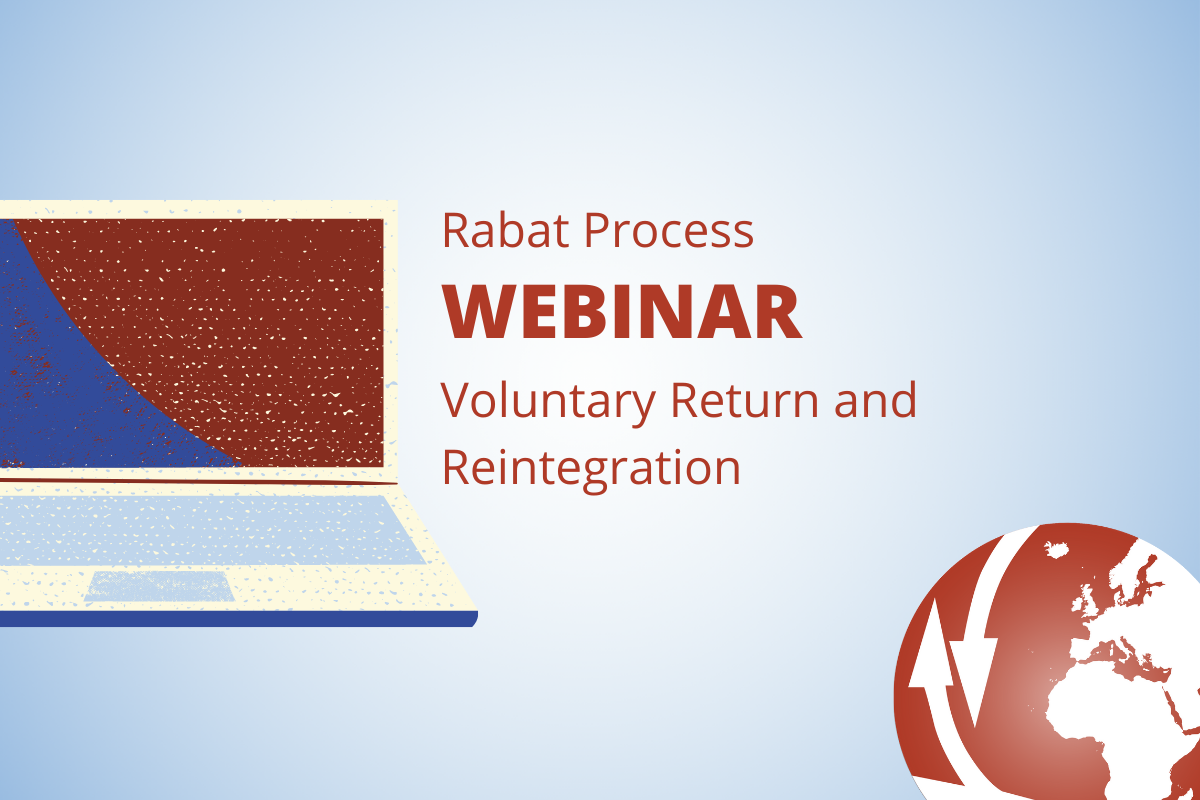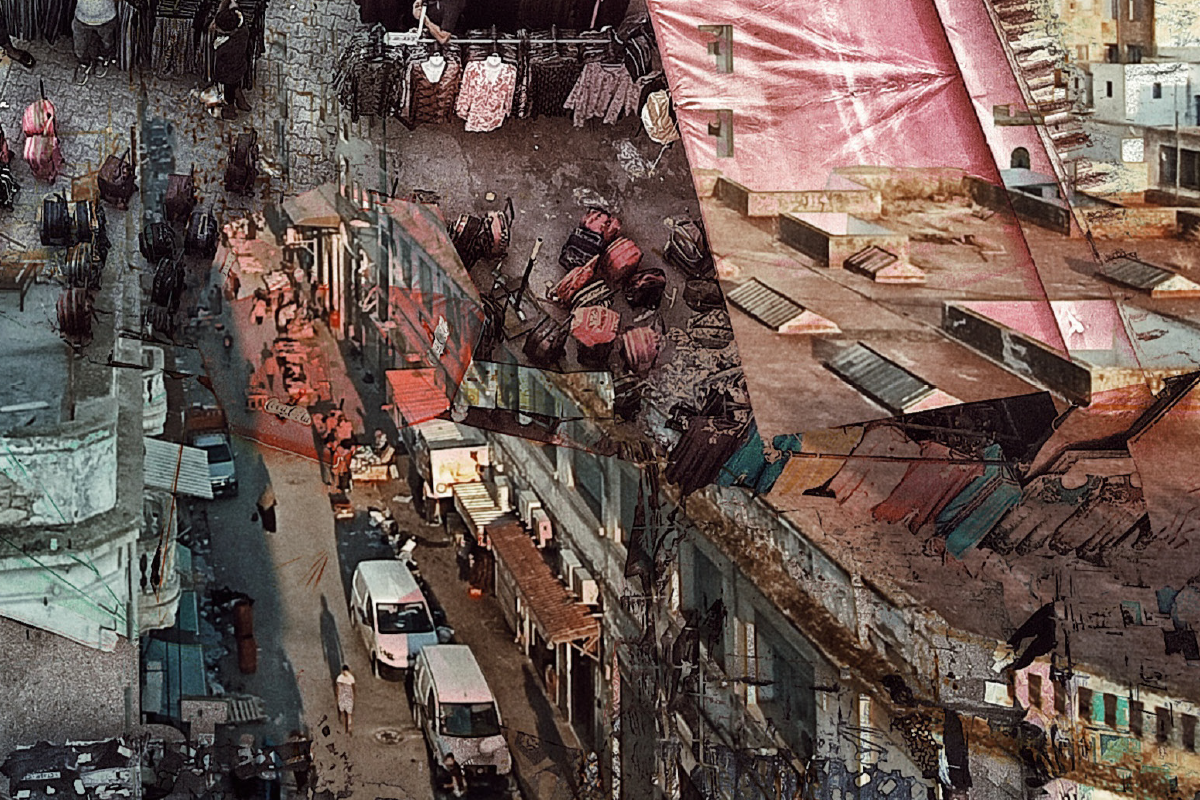Mobility restrictions as a response to the COVID-19 outbreak have considerably impacted the lives of refugees and migrants. The most recent briefing paper by the Mixed Migration Centre (MMC), produced in partnership with the Rabat Process, sheds light on “The impact of COVID-19 on refugees and migrants on the move in North and West Africa”. The paper offers analyses and data on mixed migration trends that have emerged over the course of 2020 in the two regions. It presents figures on how COVID-19 has impacted migration drivers, migration journeys and access to smugglers.
Briefing paper:
“The impact of COVID-19 on refugees and migrants on the move in North and West Africa”
First-hand insights on the impact of COVID-19
Analyses and data included in this paper are largely based on MMC’s unique 4Mi data collection programme which collects primary data about people on the move. In two distinct research phases throughout 2020, thousands of interviews with migrants and refugees have been carried out. In the second research phase alone, 6,108 interviews have been carried out to collect information about the medium to long term impact of the pandemic.
“My business no longer works with this pandemic, I lost my capital, I lost everything. So I decided to go look elsewhere hoping for a better chance.”, 24-year-old man from Chad interviewed in Niger
“Yes, I am used to migrating, but it has never been difficult like this period of Covid-19. We left home to have an income but now that is no longer the case […].”, 28-year-old man from Mali interviewed in Niger
“With this crisis, it is difficult to reach smugglers because it is forbidden to move to any destination, and therefore there is strictness by the border authorities.”, 30-year-old woman from Sudan interviewed in Tunisia
Key findings and outlook
As the COVID-19 pandemic spread in the first months of 2020, countries in West and North Africa implemented various measures to limit the spread of the virus, such as border closures between countries and partial or full confinements within countries. These mobility restrictions, together with the socioeconomic impact of the COVID-19 crisis, considerably affected refugees’ and migrants’ needs, aspirations and capabilities to migrate within and out of the two regions.
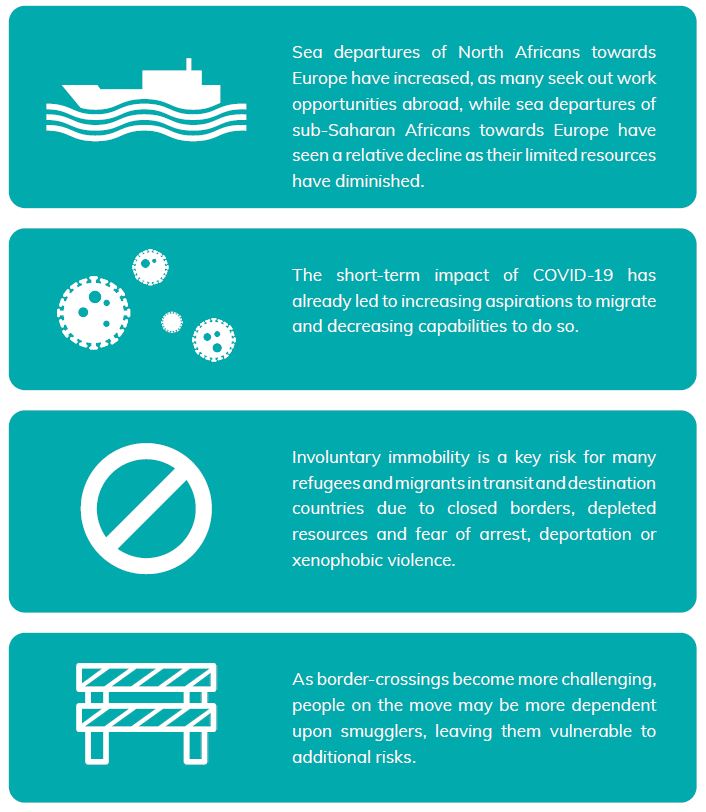
Based on these findings, the paper puts forward essential questions that policymakers should consider moving forward, as continued economic crisis linked to the pandemic and political instability are expected to reinforce existing trends.
Context of the briefing paper
This report is the first of a series of four papers that the MMC will be publishing in 2021 as part of collaboration with the International Centre for Migration Policy Development (ICMPD) in the framework of the Rabat Process Dialogue. The series addresses the Rabat Process’ cross-cutting objective of the Marrakesh Action Plan to pay “particular attention to the collection, analysis and sharing of disaggregated data”, in order to contribute to evidence-based migration policy-making. In 2020, MMC had already published a briefing paper in collaboration with the Rabat Process which looked at mixed migration in Bamako and Tunis and also took into account the impact of the COVID-19 pandemic.
Download
“The impact of COVID-19 on refugees and migrants on the move in North and West Africa”

